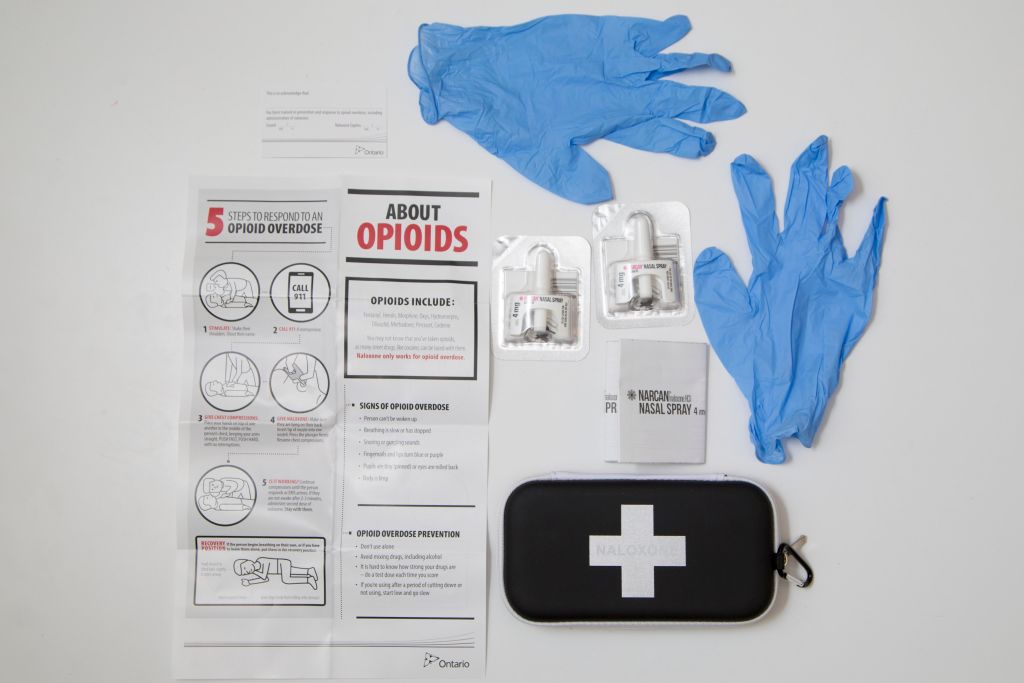Local health groups are calling for more action in the fight against a growing opioid crisis a day after city police reported tending to six separate overdose calls over the weekend involving eight people.

The six incidents happened between 12:45 p.m. Friday and 2 p.m. Sunday and saw eight people need emergency medical treatment for possible overdoses. In four incidents, fentanyl or heroin was involved, and in one case, one person died from a suspected overdose.
Speaking with AM980 on Tuesday, Dr. Chris Mackie, Medical Officer of Health for Middlesex-London, characterized London as being a medium-sized city with a big city drug problem.
“We have a lot of trouble with drug use and IV abuse in particular,” Mackie said. “What you’re seeing now, with fentanyl coming into the market, you’re seeing an increase in overdoses because it’s just that much more powerful than the other opioids like oxycodone that people have been using in the past.”
Word of the incidents came the same day Ontario Health Minister Dr. Eric Hoskins announced the province would commit $15-million toward hiring more addiction and mental-health workers and distribute nearly 80,000 kits of the overdose-reversing drug naloxone through community outreach organizations.
Opioids, Mackie says, carry an extreme risk of overdose as the body develops resistance, requiring more and more of the drug to receive the same high.
“There’s actually a phenomenon in heroin users called ‘chasing the dragon,’ where the user’s always trying to get back to that first high that they had the first time they used it, and that’s why it becomes so dangerous and you start seeing overdoses,” Mackie said.
“People who are struggling with addictions are very vulnerable to a number of health concerns… fatal overdose being the worst of those situations,” said Brian Lester, Executive Director of the Regional HIV/AIDS Connection. “As a community, and I would say as a country, we need to do everything we can to prevent unnecessary death.”
According to figures released last week by the Public Health Agency of Canada, at least 2,458 Canadians died in 2016 of reported opioid overdoses. Locally, the province says 412 opioid-related deaths were recorded in the first six months of 2016, while the Middlesex-London Health Unit recorded at least 14 deaths in London and Middlesex in the same time period.
Both Mackie and Lester said getting free naloxone kits into the hands of drug users, their friends and family members is paramount to reducing the number of opioid-related deaths in the community.
“I would also recommend that anyone that has an automatic external defibrillator (AED) in their organization at work should have naloxone in their first aid kit.”
Residents can pick up free naloxone kits from pharmacies, health units, and other community-based organizations including the Regional HIV/AIDS Connection. According to figures from the province, more than 28,000 free naloxone kits have been dispensed in Ontario as of March.
“We’ve seen high numbers of people die out west, we absolutely don’t want that happening here in our area,” Lester said. “As a distributor of naloxone in the naloxone partnership here in our community, we’re doing everything we can in our power to get naloxone into the hands of users and family and friends.”
Lester added that he would like to see dedicated resources investing into the care and well-being of those with drug addictions, be it through naloxone kits or through the movement to establish supervised injection services.
“Based on what we see – the death, the illness, the disease, the marginalization of this population and the lack of continuum of care for this group – we strongly believe that supervised injection services need to be added to continuum of care in our community,” Lester said.
Phase II of the Supervised Injection Sites feasibility study in London will get underway in the fall when an independent body will consult the wider community, Lester said.
– With files from Jacquelyn LeBel and The Canadian Press







Comments